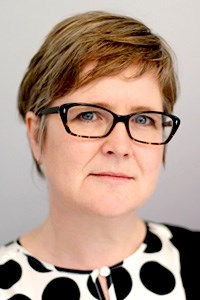There’s plenty to say about the five year’s worth of additional investment in the NHS that the prime minister announced a couple of weeks ago. First that it is incredibly welcome. Any additional investment is welcome. Second that it reflects skilful political handling to get the commitment through the Treasury in advance of the forthcoming comprehensive spending review deliberations and allocations. Third that it means the messages from the frontline over the past few years that they are overstretched and underfunded have finally got through.
So that’s good then? Yes. It is, in substantial measure, good.
Yet, despite writing this as we mark 70 years of the NHS, I think the health service as an institution has reached one of its trickiest moments since 1948. The public loves and celebrates the NHS, the public understands its challenges, the public rightly demands much of it. But over the past few weeks the expectations about what the NHS will deliver for this funding boost have snowballed. And that’s where we need to be careful. The public will be paying for this investment. They expect to see much in return.
Over the past few weeks the expectations about what the NHS will deliver for this funding boost have snowballed.
Deputy Chief Executive
So let’s be crystal clear about our starting point; the NHS wants and needs to transform. It sees its future as a tech-enabled, efficient service, free at the point of use, offering a safe, responsive compassionate service in the most appropriate setting. Wherever possible this will be in people’s homes or close to where they live. And wherever possible the focus will be on preventing ill health and promoting wellbeing. Over time the divide between physical and mental health will disappear, the relationship between the NHS and social care will be seamless.
Difficult choices
However, with everyone’s expectations running high, the reality is that we have to make some difficult choices about how the new money is divided and prioritised. On the one hand we want and need to transform and improve; on the other we need to keep up with rising costs and critically explore how we recover the performance and financial ground that has been lost over recent years.
We need to keep up with rising costs and critically explore how we recover the performance and financial ground that has been lost over recent years.
NHS Providers new report The NHS funding settlement: recovering lost ground injects some realism into the debate. It gives an assessment of the likely costs of getting the NHS back on track in terms of meeting long-established performance targets and achieving financial good health after nearly a decade of austerity. The new investment averages out at 3.4% a year for the next five years. However, it’s worth knowing that Institute for Fiscal Studies has found that the NHS needs 3.3% growth just to stand still.
Costs of recovery
So thinking about the pressure points, here’s our take on the initial costs of recovery:
Cutting delays for routine operations - growing delays aren’t good for patients. To recover the 18 week target for routine operations would cost £950 million each year, for three years.
Creating beds to meet the A&E four hour target - the NHS has not had enough beds to cope safely with demand for care. In 2017/18 we were short of nearly 8000 hospital beds. Building that capacity would cost almost £900 million.
In 2017/18 we were short of nearly 8000 hospital beds. Building that capacity would cost almost £900 million.
Restoring staffing levels for key services - pressures run across the NHS, in mental health, community and ambulance trusts as well as hospitals. To restore (not expand) the mental health and community nursing workforce to 2010 levels would cost nearly £350 million a year.
Fixing the maintenance backlog - buildings across the NHS estate are starting to deteriorate and facilities do not always meet modern standards. Tackling high and significant risk backlog maintenance would cost at least £1.2 billion a year for three years.
These are just four areas from the report. It also looks at clearing the NHS trust sector deficits, reversing cuts to other health budgets, such as public health, funding doctors’ pay rises and making sure we can reduce further the delays in transferring people who are medically fit to move on.
A stable footing
Clearly, sorting out these issues is of fundamental importance to the NHS. We need to start this new era on a stable footing. Doing so will make a very significant draw on the new money announced, using much if not most of it. And this is why we are such a tricky point; if we oversell what can be achieved we put at risk the widespread support for and commitment to the NHS. However we cannot avoid the fact that recovering our position is the first step to transformation.
We need to start this new era on a stable footing. Doing so will make a very significant draw on the new money announced, using much if not most of it.
As one, highly respected hospital chief executive succinctly put it: “You don’t landscape your garden if your house is on fire.”
This article was first published by The Times Red Box on 9 July 2018.
About the author

